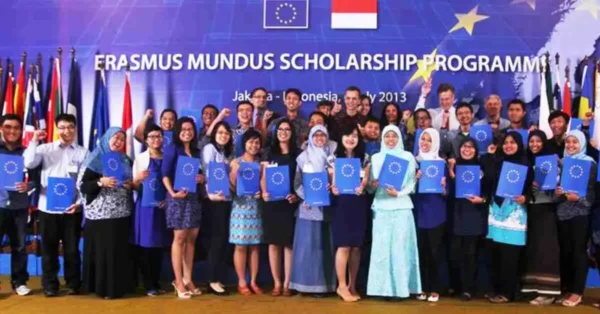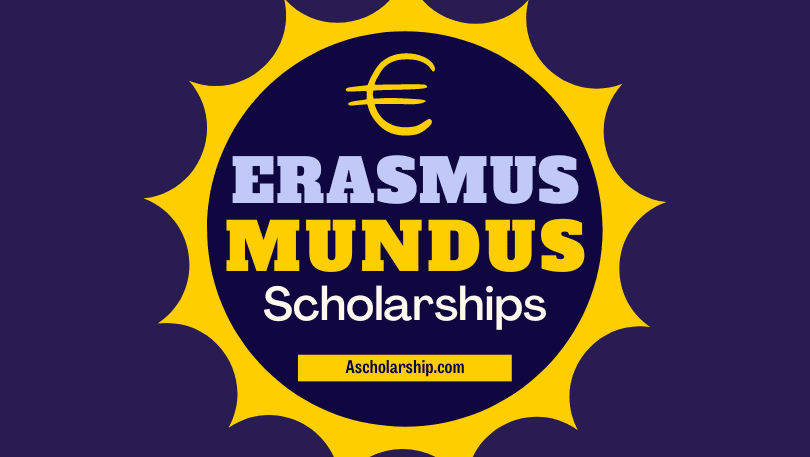Erasmus Mundus Scholarships: Empowering International Education
Table of Contents
Introduction to Erasmus Mundus Scholarships

Erasmus Mundus Scholarships stand as a beacon of opportunity for students seeking to pursue higher education in Europe. Established by the European Union, this prestigious scholarship program aims to promote international cooperation and foster excellence in education by providing funding for students and academics from around the world to study, research, and teach at European universities. In this article, we’ll explore the various aspects of Erasmus Mundus Scholarships, from their history and types to eligibility criteria, application process, and impact.
History and Background
The Erasmus Mundus program traces its roots back to 2004 when it was launched as a successor to the original Erasmus program, which focused primarily on student mobility within Europe. Building on the success of Erasmus, Erasmus Mundus was designed to extend the benefits of international exchange and cooperation to students and scholars from non-European countries, with the ultimate goal of promoting mutual understanding, intercultural dialogue, and academic excellence on a global scale.
Types of Erasmus Mundus Scholarships
Erasmus Mundus Scholarships encompass a range of funding opportunities for students and academics at various levels of education and research. These include joint master’s degrees, doctoral programs, partnerships with specific regions of the world, and individual mobility grants for researchers and staff members. Each type of scholarship is tailored to meet the diverse needs and aspirations of participants, whether they seek to pursue a full degree program or engage in short-term academic exchanges.
Eligibility Criteria
The eligibility criteria for Erasmus Mundus Scholarships vary depending on the specific program or funding scheme. Generally, applicants must hold a bachelor’s or master’s degree in a relevant field of study, demonstrate academic excellence, and meet any language proficiency requirements specified by the participating universities. Additionally, some scholarships may have specific criteria related to nationality, professional experience, or research interests, so it is essential to carefully review the eligibility guidelines before applying.

Application Process
The application process for Erasmus Mundus Scholarships typically involves several stages, including online registration, submission of supporting documents, and possibly interviews or language proficiency tests. Applicants are usually required to apply directly to the consortium coordinating the scholarship program or to the participating universities offering the joint degree program. It is crucial to adhere to the application deadlines and instructions provided by the respective institutions to ensure a competitive application.
Benefits of Erasmus Mundus Scholarships
One of the key benefits of Erasmus Mundus Scholarships is the opportunity for students and scholars to gain international experience, expand their networks, and enhance their academic and professional skills in a multicultural environment. Additionally, scholarship recipients receive financial support to cover tuition fees, travel expenses, and living costs, making it easier for them to pursue their academic goals without financial constraints.
Impact on Students and Institutions
Erasmus Mundus Scholarships have a transformative impact on both individuals and institutions involved in the program. For students, the experience of studying abroad fosters personal growth, cultural awareness, and cross-cultural communication skills, while also enriching their academic knowledge and research capabilities. For universities, participation in Erasmus Mundus enhances their international reputation, promotes academic collaboration, and strengthens their capacity to attract top talent from around the world.
Challenges and Considerations
Despite its many benefits, the Erasmus Mundus program also presents certain challenges and considerations for participants. These may include language barriers, cultural adjustment issues, bureaucratic hurdles, and logistical challenges related to travel and accommodation.

Additionally, competition for Erasmus Mundus Scholarships can be fierce, requiring applicants to demonstrate exceptional academic achievements and a compelling motivation for participating in the program.
Success Stories
Over the years, Erasmus Mundus Scholarships have produced countless success stories of students and scholars who have benefited from the program’s opportunities. From groundbreaking research projects to innovative academic collaborations, Erasmus Mundus alumni have made significant contributions to their fields of study and to society at large. Their stories serve as inspiration for future generations of scholarship recipients and highlight the enduring impact of international education and exchange.
Conclusion
In conclusion, Erasmus Mundus Scholarships play a vital role in promoting international cooperation, academic excellence, and cultural exchange in higher education. By providing funding and support for students and scholars from diverse backgrounds to study and research in Europe, this program contributes to building a more interconnected, inclusive, and knowledge-driven world.
FAQs
1. How can I apply for an Erasmus Mundus Scholarship? To apply for an Erasmus Mundus Scholarship, you must first identify the specific program or joint degree you wish to pursue and review the eligibility criteria and application requirements. Then, you can apply directly to the consortium coordinating the scholarship program or to the participating universities offering the joint degree. Be sure to carefully follow the application instructions and submit all required documents by the specified deadline.
2. What are the benefits of Erasmus Mundus Scholarships? Erasmus Mundus Scholarships offer a range of benefits, including financial support to cover tuition fees, travel expenses, and living costs, as well as opportunities for international experience, academic and cultural exchange, and personal and professional growth. Additionally, scholarship recipients gain access to high-quality education and research facilities, networking opportunities, and a supportive academic environment conducive to learning and collaboration.
